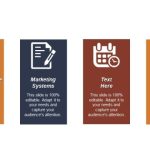Insurance marketing plays a crucial role in today’s digital age, where competition is fierce and consumer expectations are constantly evolving. In order to stand out and secure a strong foothold in the market, insurance companies need to go beyond traditional marketing tactics and harness the power of innovative strategies. With the emergence of advanced data analytics and technology, the secret sauce to effective insurance marketing lies in understanding customer needs, delivering personalized experiences, and building long-lasting relationships.
Gone are the days when insurance marketing simply meant pushing policies through cold calls and generic advertisements. Today, successful insurance marketers understand that the key lies in crafting targeted messages that resonate with their audience. By leveraging data analytics to gain deep insights into customer behavior and preferences, insurers can develop hyper-personalized marketing campaigns. This not only helps in creating a sense of individual attention but also enables insurance companies to offer tailor-made solutions that truly address their customers’ unique needs.
Moreover, the power of technology has revolutionized the way insurance marketers engage with their audience. From social media presence to mobile applications, insurers are leveraging various digital platforms to increase brand awareness and reach a wider demographic. Real-time communication channels such as chatbots and virtual assistants are also being utilized to provide convenient and prompt customer support. By embracing technological advancements, insurance marketers can stay ahead of the curve and meet the increasing demands of today’s tech-savvy consumers.
In conclusion, insurance marketing has evolved into a finely-tuned discipline that requires a careful balance of data-driven insights, personalized messaging, and embracing the power of technology. By tapping into the secret sauce of insurance marketing, companies can unlock new opportunities, establish stronger connections with customers, and ultimately drive business growth in a competitive landscape. So, if you’re an insurance company looking to thrive in the market, it’s time to unleash the power of insurance marketing and make it your secret recipe for success.
Understanding the Insurance Market
In the world of insurance marketing, understanding the insurance market is crucial. Without a deep understanding of the market, it becomes challenging to effectively promote insurance products and connect with potential customers. So, let’s dive into the intricacies of the insurance market and discover its hidden potential.
Firstly, the insurance market is highly dynamic. It constantly evolves and adapts to changing economic conditions, technological advancements, and shifts in consumer preferences. As insurance marketers, it is essential to stay updated on these changes and anticipate trends to position your products effectively.
Secondly, the insurance market consists of various segments, each with its own unique characteristics and demands. For instance, there are segments like life insurance, health insurance, automobile insurance, and property insurance. Each segment serves different needs and requires tailored marketing approaches. Understanding these segments allows marketers to create targeted and impactful strategies.
Lastly, competition within the insurance market is fierce. Numerous companies vie for the attention and trust of potential customers. To stand out from the competition, insurance marketers must differentiate their offerings and communicate their value proposition clearly. This requires a comprehensive understanding of the market, including competitor analysis, market research, and customer insights.
Having a solid grasp of the insurance market is the secret sauce that enables insurance marketers to unleash their full potential. By staying abreast of market dynamics, segment-specific knowledge, and competitive insights, marketers can develop successful strategies to captivate their target audience and drive business growth.
So, buckle up and get ready to explore the power of insurance marketing in the following sections!
Effective Marketing Strategies
Insurance marketing requires a well-thought-out strategy in order to effectively engage with potential customers. By implementing the right marketing strategies, insurance companies can attract their target audience and generate leads. Here are three key strategies to consider:
-
Identifying Target Market: Before launching any marketing campaign, it is crucial to identify and understand the target market. By analyzing customer demographics, behaviors, and needs, insurance companies can tailor their marketing efforts to resonate with their audience. This targeted approach helps in creating personalized messages and offers, increasing the likelihood of customer engagement and conversion.
-
Utilizing Digital Platforms: In today’s digital era, leveraging online platforms is essential for insurance marketing success. Having a strong online presence through a user-friendly website, active social media profiles, and engaging content can significantly expand reach and visibility. Implementing search engine optimization (SEO), paid advertising, and email marketing campaigns can also help to capture the attention of potential customers who are actively searching for insurance products or relevant information.
-
Building Trust and Credibility: Trust plays a crucial role in insurance marketing. To build trust, insurance companies should focus on establishing credibility and showcasing their expertise. This can be achieved through thought leadership content, case studies, testimonials, and partnerships with respected organizations. Additionally, providing excellent customer service and promptly addressing inquiries or concerns helps to instill confidence in potential customers, making them more likely to choose your insurance products.

By implementing effective marketing strategies, insurance companies can position themselves as trustworthy and reliable entities, leading to increased brand visibility, customer engagement, and ultimately, business growth.
Measuring Success in Insurance Marketing
When it comes to insurance marketing, measuring success is crucial. Without proper measurement, it’s difficult to determine the effectiveness of marketing strategies and make data-driven decisions. In the insurance industry, where competition is fierce, understanding what works and what doesn’t can give companies a significant edge.
One key metric to measure success in insurance marketing is conversion rate. This metric tells you what percentage of potential customers take the desired action, whether it’s signing up for a policy, requesting a quote, or completing an application. By tracking conversions, insurers can assess the performance of different marketing campaigns and identify areas for improvement.
Another important aspect to consider is customer retention. Building long-lasting relationships with clients is vital in the insurance industry. Measuring customer retention rates helps companies understand how effectively their marketing efforts are keeping existing policyholders engaged and loyal. By identifying patterns and trends in customer retention, insurers can implement targeted strategies to improve client satisfaction and minimize churn.
Lastly, tracking return on investment (ROI) is essential in insurance marketing. ROI provides valuable insights into the financial impact of marketing campaigns. By measuring the revenue generated from marketing activities and comparing it to the associated costs, insurers can evaluate the efficiency and profitability of their efforts. This helps allocate resources effectively, focusing on strategies that deliver the greatest ROI.
In conclusion, measuring success in insurance marketing involves tracking conversion rates, monitoring customer retention, and assessing return on investment. These metrics provide valuable insights into the effectiveness of marketing strategies, enabling insurers to optimize their efforts and stay ahead in a competitive landscape.
